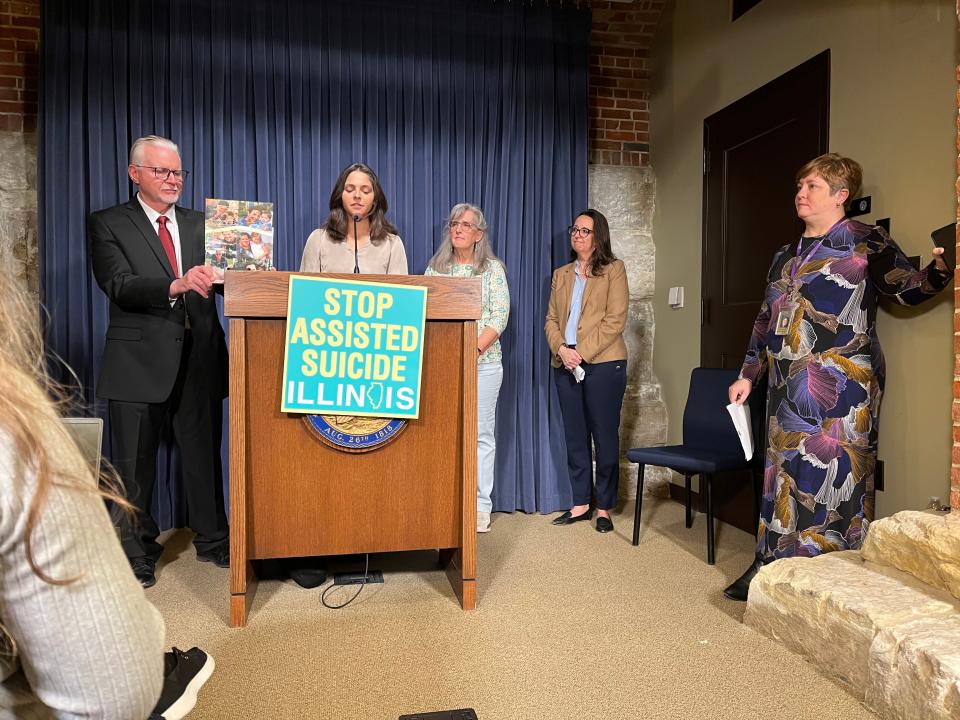Illinois could legalize physician-assisted suicide, but opposition is mounting
Illinois could become the 11th state with end-of-life options through recently filed legislation. Opposition, however, is mounting.
The End-of-Life Options Act, contained in Senate Bill 3499, creates an option for terminally ill patients to request and take medication that would allow them to end their lives in a peaceful manner. Those who have the "right-to-die" would specifically apply to patients older than 18 with an irreversible illness and have six months left to live and make an oral and written statement on the decision.
Once a patient makes this request then the attending physician must inform the patient of all of their other options including hospice and palliative care before going through the process. It is also written in the bill that a healthcare professional cannot be held liable for prescribing or refusing the treatment.
For bill sponsor Sen. Linda Holmes, D-Aurora, her dad was diagnosed with lung cancer when she was a teenager. Only 49, the disease "macerated" him over the course of three months before his death, according to Holmes.
Holmes' mother became sick later on and did not want to suffer like her husband.
"She had raised us always knowing that there would be a 'do not resuscitate', 'do not do any extra measures that would keep me suffering' (order)," Holmes said in a recent interview.
The senator said the public broadly supports her legislation, pointing to a 2023 report from Impact Research, a progressive public policy research firm. Among likely Illinois voters, the study found 71% supported establishing a legal right for physician-assisted suicide.
Opposition from religious, advocacy groups

Although the bill was introduced not long ago it has already gotten the attention of opposing organizations including religious organizations and advocacy groups.
Opposition comes in-part from the advocacy group Access Living, who believes physician-assisted suicide is unethical.
In states already allowing physician-assisted suicide, opponents said existing laws are both insufficient and ignored in many cases. Amber Smock, director of advocacy at Access Living, said without investigation tools to determine whether a patient was coerced makes it unclear if the law is working as intended.
“What we know from studies done by the National Council on Disability is that those safeguards are not effective for people with disabilities,” she said during a recent press conference.
More News: Voter turnout, incumbency advantages and more: 5 takeaways from primary election
Another reason for opposition is because of life expectancy. Predicting this has proven to be challenging, opponents said, many patients living beyond those estimates.
A primary concern for the Catholic Conference of Illinois is healthcare professionals coercing patients, specifically disabled patients — leading to distrust between the healthcare system and patients.
“You have the entire worry that people will be coerced or feel like they have been made a burden to their families or to society, so they feel like this is their only option left,” said Jeanette Malafa the director of government relations for the Catholic Conference of Illinois.
The bill is currently still sitting in a Senate subcommittee.
Contact Hope Gadson: hgadson@gannett.com.
This article originally appeared on State Journal-Register: Illinois could be latest state to legalize physician-assisted suicide

